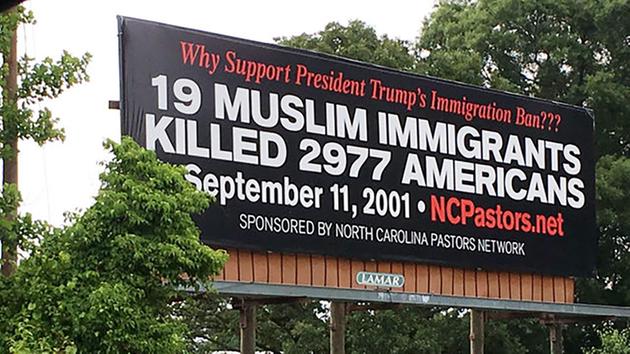Last week I was invited to speak at an interfaith panel discussion. I rarely say no to these things. For starters, you never know who you might meet. Community events are the best evangelism going, and a lot cheaper than digital signs or radio ads. Besides, I love a good chat. In this case, I didn’t know much about the event before I got there. It was a continuing ed thing for a professional group I wasn’t familiar with, on a campus I’d never heard of. But, sure. I’m in.
Turns out, the gathering was a group of Human Resources professionals, learning about religious diversity in the workplace.
I can speak off the cuff about a lot of things. But being persecuted for my faith is not one of them.
As I listened to the Jewish speaker, and then the Muslim speaker, talk about what employers can do to make work places more open to people of different faiths, I thought–what can I possibly add here? I am a Christian. Though the numbers say we’re in decline, most every part of our culture is built around MY faith tradition. Its calendar, its cultural assumptions, its particular narrative of virtue and morality… I cannot think of a single reason that employers should be sweating Christian comfort at work.
We talk a lot about white privilege (even though we are still learning how to counter it). We talk about hetero- and cisgender privilege. We talk about male privilege. But we seldom acknowledge or discuss the ways, both subtle and overt, that those who identify as Christian enjoy the default center position in most areas of public life.
Think about it. Most of our federal holidays align with holy days of Christian origin. Public school calendars often plan their breaks around the liturgical calendar. The work week revolves around Sunday as a sabbath day of rest. Even the cycles of the retail year are based on when Christians are most likely to be shopping. If you start looking for it, you see it everywhere.
So what I told this group of Human Resources leaders, who are seeking to make their workplaces more open and diverse, is that I’m the last person they should be asking. There are plenty of Christians out there who will tell you that they are persecuted–because privilege often makes people think that their every belief should be written into law and imposed on others–but I am not one of those Christians. Far from being offended by other expressions of faith, my hope is that Christians in the workplace can be the ones advocating for better understanding and more consideration for our brothers and sisters of other traditions. I’d hope that we can begin to recognize how our own privilege has unintended negative consequences for others, and that we can help employers create a more diverse culture.
I do not think that’s what they were expecting to hear from the Christian in the room. But it needed to be said. And it needs to be said by Christians in more rooms, in more kinds of circles.
Because, on a train in Portland last weekend, a white man began verbally harassing two women who he presumed to be Muslim. When strangers interceded on their behalf, he killed them. Quickly, viscously, and in cold blood. And while this is the act of a single, deranged man, the sentiment that he voiced–in both his words and his actions–do not emerge in a vacuum. The world of Christian privilege that we enjoy in America has given birth to the world of anti-Muslim hate speech. And it’s not a long journey at all from hate speech to violence.
This happened on the first day of Ramadan. It is the height of tragic irony that the attacker’s last name is “Christian.”
Meanwhile, over in North Carolina, a giant billboard sits by the side of a busy road. It goes like this:

It does not say “Muslim Terrorists,” or “Islamic Extremists.” It makes no distinction between violent radicals, and the practicing Muslims next door who just want to live their lives. This sign just implies a vague, shadowy threat. In a most alarmist fashion. And who sponsors this sign? The North Carolina Pastors Network. Clergy. Guys who probably get together and eat pancakes and drink bad coffee every Tuesday morning. So they can share prayer concerns and study the lectionary. And while they’re at it, they work to villainize all distinctly non-Christian neighbors as “them” and “other,” and therefore highly suspect.
This kind of “Christian” fear-mongering gets people killed more often than we’d like to acknowledge.
There is a clear line from that billboard in North Carolina to a bloody train in Portland. It is the vein of Christian privilege that runs through the heart of this country; and it is not just a mild inconvenience for those who do not live by our calendar. It creates a climate in which it is dangerous to be anything BUT Christian. And that is not what Jesus and George Washington had in mind.
The work of being interfaith inclusive is not just some vague nod to all things politically correct. It is the work of democracy, and the work of faith. It is the work of peace-making, which is what both our faith and our God call us to. Whatever our particular name for God might be.
So back to my meeting with my new HR friends… at some point we started talking about holidays. There was lively discussion about best practices for office festivities. Do you put up a tree? Do you say “happy holidays” instead of Merry Christmas? And when do you celebrate? Etc.
One of the attendees said “we always have a party in January, and there’s a different theme each year. This year, for instance, we had a Kentucky Derby theme!”
And I was like… “Hold up. You have a Kentucky Derby party In January?? Now that–that is offensive to me.”
And then we laughed and talked bourbon. Because life is better with more people at the table.












